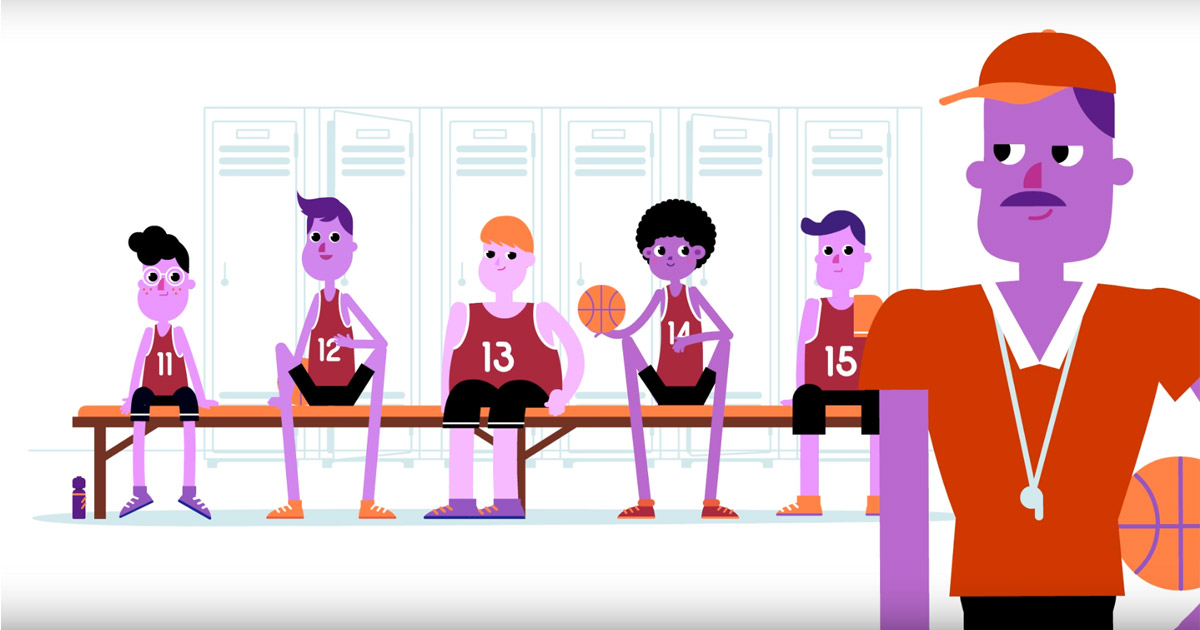Top Signs Boys are in Puberty
UPDATED VIDEO: We heard your voices! Thank you! You can watch an updated version of this video here: “Boxers and Boners: A Puberty Guide.”
This video explains signs of puberty in boys: When do boys hit puberty? What are the first signs of puberty in males? When does puberty end for boys? [AMZ-003]
Video: Puberty for Boys
This video goes through the physical, emotional, and social changes of puberty for boys. It lists the most noticeable physical and emotional changes when boys hit puberty. The video defines semen, erections, wet dreams, testosterone and masturbation, while explaining the purpose of puberty.
Youth
If you’re between the ages of 10 and 14, you’ve probably started to experience puberty or some of the changes that happen when your body changes from a child to a young adult. Then again, you may not have. Either way, don’t worry! Puberty in boys can start as early as age nine and as late as 15, but eventually, everyone goes through it!
FAQs
Everybody goes through puberty at their own pace. Hormones—the body’s chemical signals—tell your body to begin changing. Some people who are biologically male may experience a growth spurt sooner than others, while other might get facial hair or a deeper voice later than others. Your body will go through puberty at the exact right time for you, and there’s no way to speed it up or slow it down. So don’t worry, it’s all totally normal!
Yes, during puberty, people can experience strong sexual feelings for no reason. A person that has a penis may get erections, when the penis fills with blood and stands away from the body. Erections can happen at times that are inconvenient, like while you’re sitting in class, which can be embarrassing. It’s good to have a plan for what you can do if and when this happens to you. You can try carrying an extra sweatshirt in your backpack to tie around your waist or a book you can carry in front of you. Mostly, don’t worry—it happens to everyone and as you get older, it won’t happen nearly as much.
During puberty the body produces a hormone called testosterone that tells the testicles to start making sperm. Once the body starts making sperm, semen—the fluid that contains sperm—can be released through the tip of the penis. This is called ejaculation. Wet dreams happen when ejaculation occurs spontaneously while a boy is sleeping. Often when you have that first wet dream, you may think you have peed in the bed, but it’s actually semen. You can simply take the sheet off the bed and put it in the hamper to be washed. And remember, wet dreams are normal if you have them and normal if you don’t.
Parents
During puberty, a person goes through many physical, emotional and social changes. Boys usually begin puberty between the ages of 9 and 15, and it may take five to seven years for all of the changes to occur. The most obvious of these changes include a growth spurt; the voice becoming deeper; shoulders becoming broader; hair growth on the face, around the genitals and underarms; and the genitals growing larger. Some boys may experience acne, and their sweat may develop a strong odor. Some may also experience slight breast growth that can be embarrassing but usually resolves on its own.
The changes of puberty enable people to physically reproduce. During puberty, testosterone triggers the testicles to start making sperm, so the penis can now ejaculate. During puberty, some boys experience wet dreams or nocturnal emissions, when ejaculation occurs spontaneously during sleep. Wet dreams are normal, though not everyone has them. Many boys also experience spontaneous erections during puberty. Again, it’s normal if they do, and normal if they don’t.
The emotional changes associated with puberty may include having intense mood swings and new sexual and/or romantic feelings. Boys’ relationships with their parents, siblings and friends may also change during this time. They may express the desire for more privacy and want to spend more time with their friends. Young men going through puberty may feel embarrassed, nervous, self-conscious and/or excited by all of the changes they are experiencing. Having a wide range of feelings about puberty is completely normal.
It is important for caring adults to explain the changes of puberty to young men before and while they are going through them. It is also essential to assure them that these changes are normal. Helping young people identify ways to cope with these changes can make this stage of life less stressful. Talking about these changes with the young people in your life lets them know that they are not alone and that they can come to their parents or guardians if they have questions or need support.
Conversation Starters
If you start essential conversations about topics like puberty with your children, then they will know they can come to you with questions. The easiest way to start these conversations is to talk about issues as they arise in everyday life while you are doing things like watching TV together. Masturbation, wet dreams and spontaneous erections may not just come up in conversation, but it’s important to talk about the issues that can provoke anxiety or worry for boys. If you talk with your child, he will know what to expect and how to cope. Below are some ways to start these conversations:
Try broaching these topics while doing something related to them. For example, while in the store buying deodorant for yourself, you can share why you use deodorant and ask which one your child wants to try. While shaving your face, you can bring your child in to shave together. These actions can create opportunities for conversations about puberty to happen in as natural a setting as possible.
When the two of you are alone after dinner, you could say, “Boys your age or a little older sometimes ejaculate while they are sleeping. I want you to know that it’s normal if that happens to you and it’s normal if it doesn’t. If it happens, you can just throw your sheets in the hamper and put on some new ones. No worries at all. What do you think?”
Educators
During puberty, a person goes through many physical, emotional and social changes. Boys usually begin puberty between the ages of 9 and 15, and it may take five to seven years for all of the changes to occur. The most obvious of these changes include a growth spurt; the voice becoming deeper; shoulders becoming broader; hair growth on the face, around the genitals and underarms; and the genitals growing larger. Some boys may experience acne, and their sweat may develop a strong odor. Some may also experience slight breast growth that can be embarrassing but usually resolves on its own.
The changes of puberty enable people to physically reproduce. During puberty, testosterone triggers the testicles to start making sperm, so the penis can now ejaculate. During puberty, some boys experience wet dreams or nocturnal emissions, when ejaculation occurs spontaneously during sleep. Wet dreams are normal, though not everyone has them. Many boys also experience spontaneous erections during puberty. Again, it’s normal if they do, and normal if they don’t.
The emotional changes associated with puberty may include having intense mood swings and new sexual and/or romantic feelings. Boys’ relationships with their parents, siblings and friends may also change during this time. They may express the desire for more privacy and want to spend more time with their friends. Young men going through puberty may feel embarrassed, nervous, self-conscious and/or excited by all of the changes they are experiencing. Having a wide range of feelings about puberty is completely normal.
It is important for caring adults to explain the changes of puberty to young men before and while they are going through them. It is also essential to assure them that these changes are normal. Helping young people identify ways to cope with these changes can make this stage of life less stressful. Talking about these changes with the young people in your life lets them know that they are not alone and that they can come to their parents or guardians if they have questions or need support.
National Sex Education Standards
Explain the physical, social, and emotional changes that occur during puberty and adolescence and how the onset and progression of puberty can vary
Describe how puberty prepares human bodies for the potential to reproduce and that some healthy people have conditions that impact the ability to reproduce
Explain common human sexual development and the role of hormones (e.g., romantic and sexual feelings, masturbation, mood swings, timing of pubertal onset)
International Technical Guidance on Sexuality Education
Discussion Questions
- What are some of the changes of puberty that you saw in the video?
- Did any of these changes surprise you?
- How do you think someone might feel when they start to experience these changes?
- What can a young person do if they are worried or confused about the changes of puberty?





